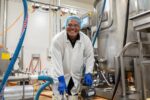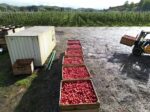The World’s 100 Best Coffee Shops: Asia Pacific’s Notable Winners
The second edition of THE WORLD’S 100 BEST COFFEE SHOPS 2026 with DaVinci Gourmet announced its global rankings at CoffeeFest Madrid 2026, revealing a reshaped coffee landscape for the Asia Pacific region. This definitive list of the world’s best specialty coffee shops saw Australia deepening its leadership with seven coffee shops in the global ranking, Taiwan with four, returning favourites such as Singapore’s Apartment Coffee maintaining its 2025 ranking, and Malaysia’s Story of Ono climb one level up. Australian newcomer Only Coffee Project Crows Nest clinched 4th position followed by Toby’s Estate Coffee Roasters in 5th. Returning to the list were Proud Mary Coffee and Coffee Anthology, joined by newcomers Beta Coffee and Single O. The blend of returning icons and new entrants underlines Australia’s ongoing influence on global café standards. In Asia, Apartment Coffee in Singapore and Story of Ono in Malaysia took 6th and 8th place respectively, with The Republic of South Korea, Japan, China, and The Philippines securing placements in this year’s Top 100 rankings. See the full list at The World’s 100 Best Coffee Shops The list confirms the emergence of new global capitals of quality coffee, as well as the consolidation of an increasingly diverse and innovative international coffee community that includes The United States, which leads the ranking with nine selected coffee shops, South America, Europe, Asia Pacific, Africa and Middle East. “Congratulations to all 100 ranked coffee shops. The World’s 100 Best Coffee Shops 2026 with DaVinci Gourmet is the global benchmark celebrating the cafés shaping the future of coffee, and as a leading beverage solutions brand, DaVinci Gourmet is proud to stand alongside it as the global title partner,” said Eloise Dubuisson, General Manager, Food Service Brands, Kerry Asia Pacific, Middle East & Africa. A GLOBAL EVALUATION PROCESS The ranking is produced through a mixed system combining the evaluation of more […]










